(The original article was published on July 22, and the author is Zach Kram of ESPN website. The content of the article does not represent the translator's views)
NBA is a trade-filled alliance. Teams must conduct precise transactions, signings and drafts to compete for the championship, and fans often pay more attention to these operations than the game itself.
Some transactions have brought great success. Look at the last two NBA champions: the Oklahoma City Thunder and the Boston Celtics traded Alexander, Caruso, Derek White, Ju Holiday, Horford and Porzingis, as well as Jaylen Williams, Jason Tatum and Jaylen Brown for draft picks. Other recent champion teams selected their MVP players in the 41st pick (Jokic) and 15th pick (Antetokounmpo).
However, some transactions ended in a crushing defeat. It is precisely what we need to do in-depth analysis of these bad deals. Let's take a look at the most disruptive decisions every NBA team has made since 2020.
30. Cavaliers: The biggest mistake is to reject Harten's qualification offer (2021)
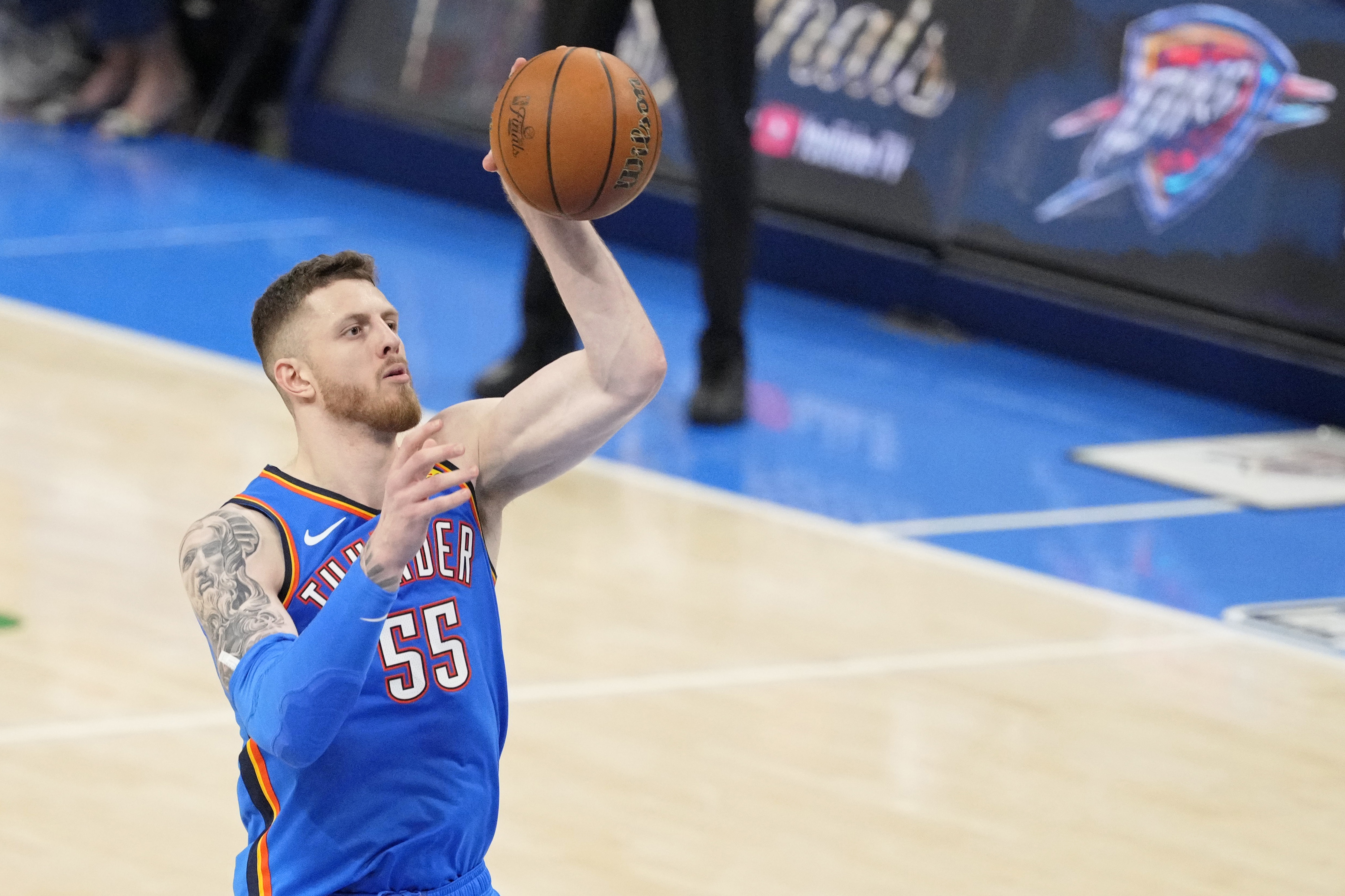
Cavaliers have made almost no mistakes in the process of rebuilding the team after LeBron James' second departure. They used the decade's high-level pick to pick Mobley (and traded most other first-round picks in exchange for Donovan Mitchell), built a strong core roster and stabilized it with long contracts. The last major mistake of the team was to hire John Bellein as head coach in 2019.
Cleveland undoubtedly regrets not providing a qualification offer to Harten in 2021. Harten, who was already a veteran at the time, was abandoned by the Houston Rockets and traded by the Denver Nuggets in exchange for McGee - ironically, the Nuggets have been in vain for Jokic's suitable substitute center in the following five years.
Harten showed his potential during his brief time with Cleveland, averaging 17 points, 12 rebounds and 5 assists per 36 minutes in 16 games. However, after picking Mobri, the Cavaliers think Harten is no longer needed – only to see him convert his potential into better on-field performances in the Los Angeles Clippers, the New York Knicks and the Oklahoma City Thunder and eventually become a key contributor to an NBA championship team.
29. Pacers: The biggest mistake was hiring Nate Bjork Glen as head coach (2020)
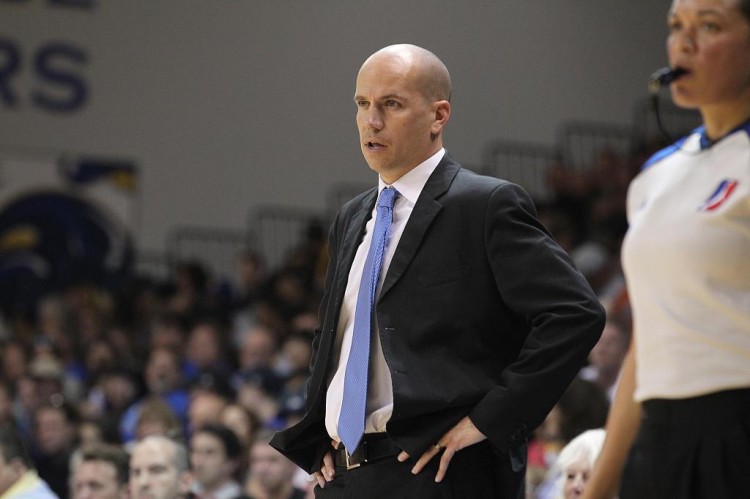
In NBA history, few coaches have suffered as quickly as Bjork Glen with the Indiana Pacers. As a former G League coach and NBA assistant coach (who won the championship with the Toronto Raptors in 2019), Bjork Glenn clashed with Pacers veterans and lost control of the locker room. In his only season as head coach of the Pacers, the team missed the playoffs for the first time in six years.
This error is only ranked 29th because it may eventually be good for both York Glen and the Pacers. Because they fired Bjork Glenn after just one season, it allowed them to hire a new coach in 2021—just catching Rick Carlisle resigned from Dallas Mavericks head coaching and back to the Pacers.
28. Knicks: Signing Fournier for 4 years and $73 million (2021)
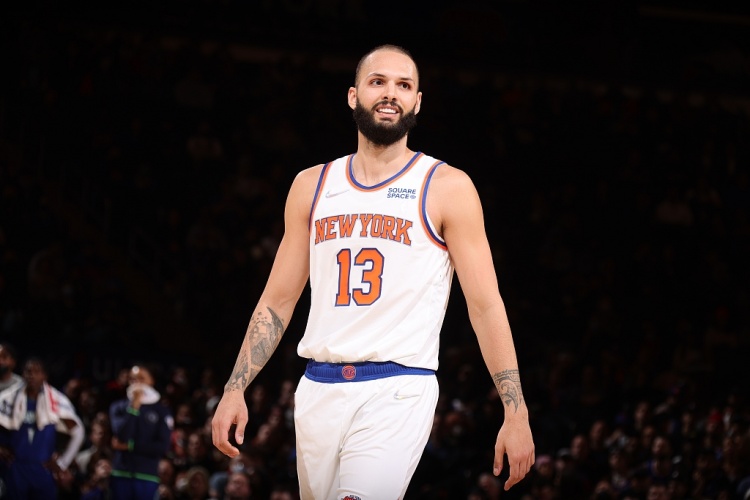
The Knicks introduced Fournier by signing first and then changing. He averaged 18 points in the previous two seasons and shot as high as 40% of his three-point shooting percentage. However, in his first season in New York, although he still averaged 14 points per game in 80 games, his performance then took a sharp turn for the worse. He averaged only 6 points per game in 27 games in his second season and missed the team's playoff journey due to injury. In his third season, he could only average 4 points in three games, and was eventually sent to Detroit before the trade deadline.
Knicks signed a four-year contract with Fournier, but eventually he left the NBA just three years later and moved to the European League.
27. Trail Blazers: In 2023, the contract renewed for $160 million in five years and $160 million, the day after the Trail Blazers reached a new contract with Grant in the summer of 2023, news that Lillard requested a deal to leave Portland was spread. Suddenly, this expensive but understandable long-term contract seemed out of place, as the veteran striker was no longer suitable for the team's rebuilding roster.
Two years later, Grant's performance has dropped sharply - his shooting percentage dropped to a career-low 37% last season - and he has fallen behind younger Avdia and Kamala in Portland's perimeter rotation.
Grant's contract has not affected the Trail Blazers' other operations yet -- but as the team improves, Holiday's big contract has been added, and Grant has $102.6 million left in the next three seasons, which could soon become a tricky lineup construction barrier.
26. Jazz: There was no trade in Markkanen in the 2023-24 season. In the reconstruction process after Mitchell and Gobert's trade, the Jazz have entered their third year, but the team is still at the bottom of the West and has the worst lineup in the league. Given the team's long rebuilding schedule, it's unclear whether Markkanen, now 28, is still suitable for staying in Utah.
However, the problem is that Markkanen was worth a lot more than it is now when he won the fastest-progress player award for his outstanding performance. He had just signed a big contract at that time, but then fell from his brief All-Star level. In the 2022-23 season, Markkanen averaged 26 points per game, shooting 50% from the field; but last season his average score dropped to 19 points and his shooting percentage dropped to 42%.
25. Hornets: In 2020, they signed Hayward for $120 million in four years, for $120 million, and the Hornets were usually not a big deal in the free agent market, but in 2020, they signed an important player by signing first and then changing. In the six offseasons in J's nearly 10 years, only two free agents have won higher contracts than Hayward when changing teams: Paul George (join Philadelphia) and Van Vreet (join Houston).
As Hayward's health worsened, he was far from meeting the Hornets' expectations. The experienced winger played only 59% of Charlotte's games during his time, and his performance has declined year by year. The Hornets never made the playoffs with Hayward, and he also failed to play in two playoffs during that time.
In the end, the Charlotte Hornets traded him in the final year of Hayward's contract for chips dominated by Trey Mann and a second-round draft pick.
24. Clippers: Never train young outside players (2020-25 season)
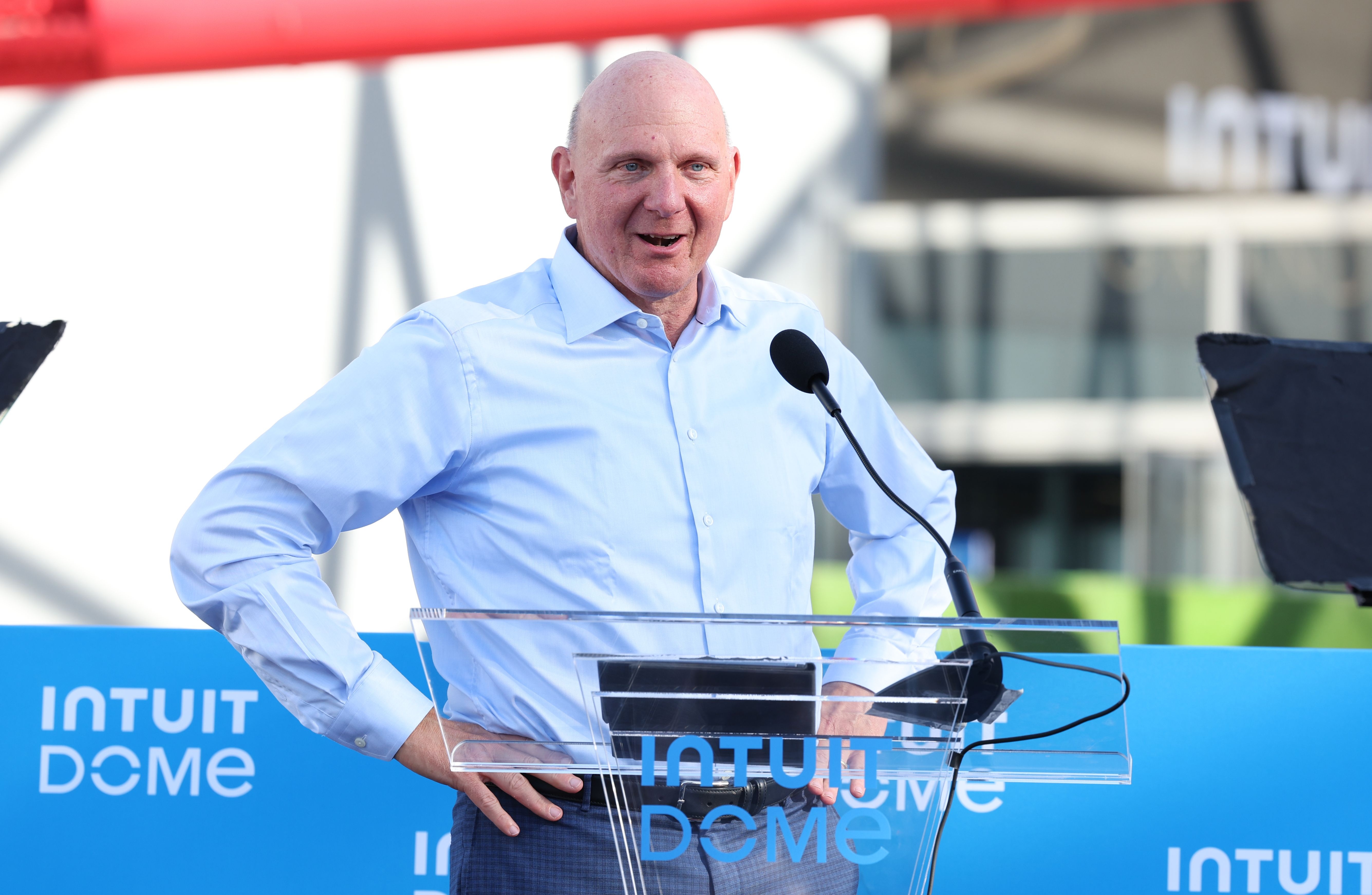
If we started this assessment a year ago, the Clippers might be close to the top because of their important deal with the Thunder in 2019, which sent Alexander and a large number of draft picks to Oklahoma City. But in the 2020s, the Clippers management did not have a specific move that could be highlighted as a major mistake. The Clippers' mistake was that they failed to develop young outside talent to support Leonard and Paul George. Although they are more successful in the center position, such as Zubac and Harten's performance, in the playoffs, the Clippers' starting backcourt combinations include Reggie, Patrick Beverly, Shamet, Westbrook and Eric Gordon - these players are obviously not the defenders who can lead the team to the championship.
To be fair, the Clippers have not had any high picks in this decade due to the 2019 deal with the Thunder. And they also failed to pick outstanding players (Kean Johnson and Kobe Brown) in two late first-round draft picks, nor did they find any potential new stars in the marginal players. The closest to success was 2019 second-round draft pick Terence Mann, who showed some potential early in his career but was traded twice in a few months earlier this year due to contract issues.
23. Thunder: After the draft, trade four future rotation players (2020 and 2021)
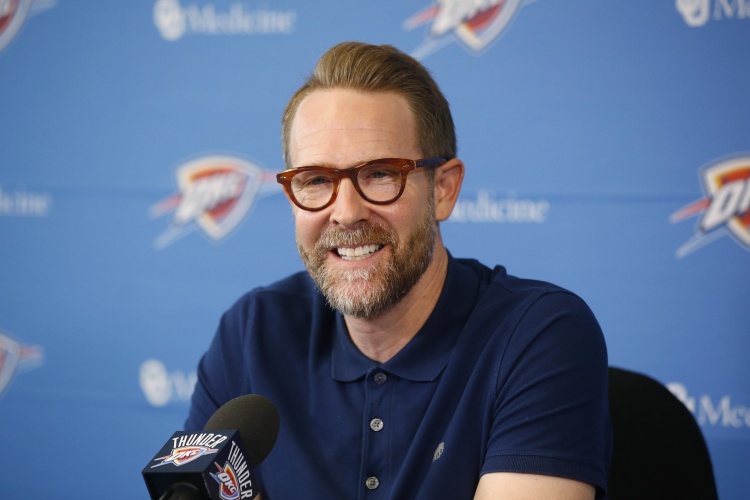
Even the best general manager will miss it. Sam Presti is one such example, a master of building a championship roster and potential dynasty, but repeatedly making mistakes in the trade.
Three draft deals reveal Presti's human weaknesses. In 2020, he exchanged the 25th and 28th picks for the 17th pick, but sent away future starters Quickley and Jaden McDaniels, and only brought Pokushevsky back to Oklahoma City. In 2021, he traded up from the 36th pick to the 32nd pick, choosing Robinson Earl instead of choosing a more practical substitute McBride. Worst of all, he also traded Shin Kyung, the 16th pick in the same year, a European rookie with more potential than Pokushevsky, to the Rockets for two future picks, and used those picks a year later for Usman Dion.
22. Celtics: Trade Desmond Bain (2020)
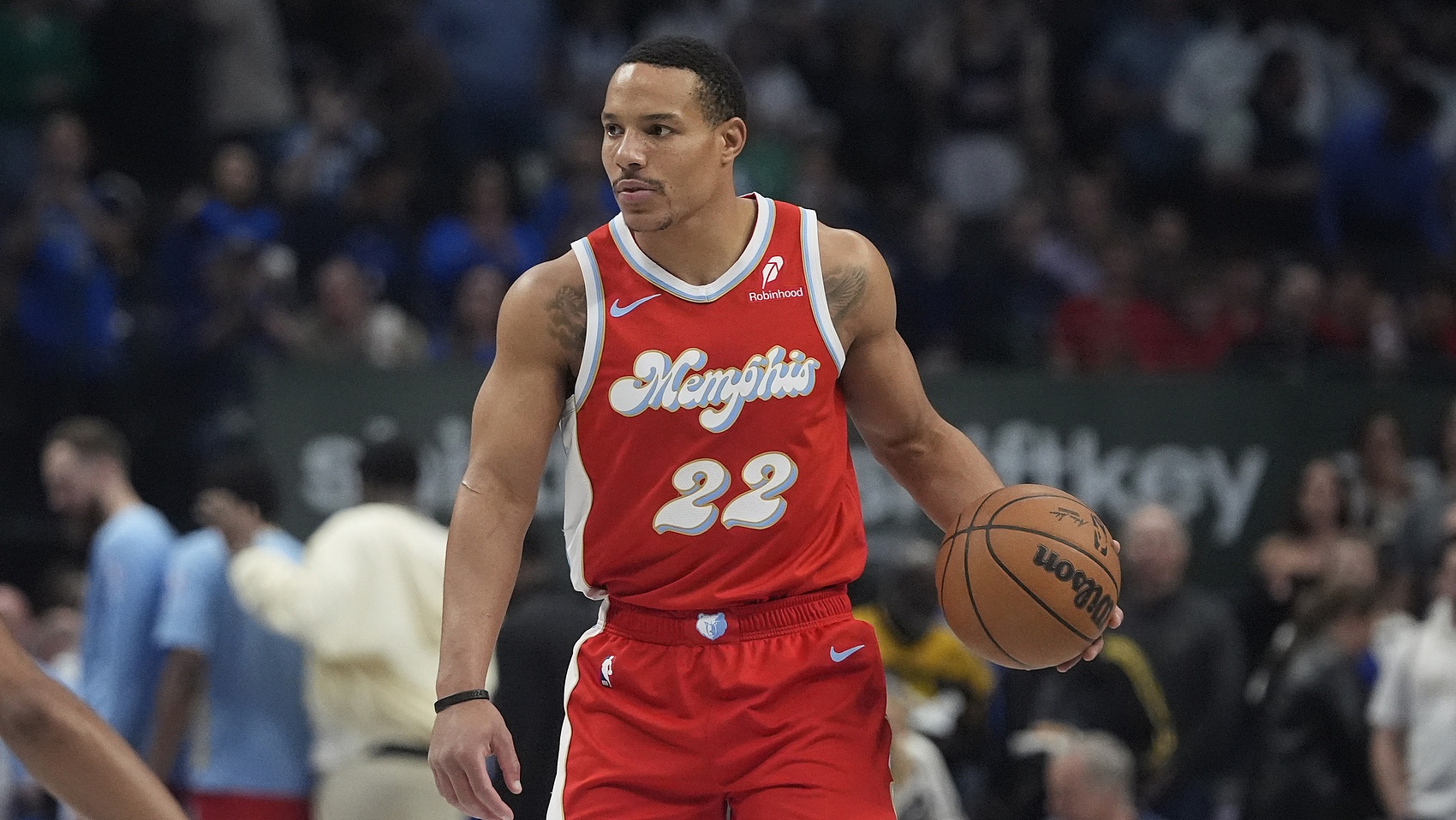
It was a reasonable decision at the time: the Celtics' roster has no room to accommodate a young player, and by trading Bain's draft pick, they were able to get rid of Friedman's salary burden. No one expected the 30th pick to grow into a player who will be able to exchange for four first-round picks in the future.
However, Bain did do this, and Boston certainly needed him very much in the last five years. As a great defender and 41% career three-point shooting percentage, Bain should have been the perfect puzzle in the Celtics system.
21. Rockets: Choosing Jaylen Green instead of Mobley in the 2021 draft, Green is indeed better than other draft mistakes discussed. But the opportunity cost of choosing him is also higher, as the Rockets chose Green with the second pick, while Mobley was selected in the third pick.
This decision may ultimately be beneficial to the Rockets, as Green becomes the core bargaining chip for the Rockets to trade Kevin Durant this summer, and the Rockets also chose another All-Star big man Shin Kyung in the 2021 draft. If the frontcourt combination of Durant and Shin Kyung can lead the Rockets to the NBA Finals next season, then they will see the 2021 draft as a key team-building moment rather than a missed opportunity.
But now, it's hard not to imagine what it would have been like if the Rockets chose Mobley instead of Green at the time - especially when Uduka was the head coach, with the team emphasizing defense, Mobley's position as the current defensive player of the year is even more prominent. Apart from Amen Thompson, Mobley may have a higher potential than any young core of the Rockets.
20. Magic: Select Jet Howard with the 11th pick in the first round in 2023. In two seasons of his career, Howard, who was selected with the 11th pick, averaged only 3.8 points per game and shot only 29% from three-pointers. He played only 14 minutes in two playoff series.
Howard's choice was a disaster for the Magic for three reasons. First, he was considered an adventurous option in the draft (ranked 20th in ESPN's final mock draft), and the bet was not paid off.
Secondly, his development has stagnated, which is particularly problematic, as the Orlando Magic ranked 25th in the league in three-point shooting percentage one season before his arrival, 24th in the rookie season, and fell to 30th last season. The team had hoped he could help solve the long-standing three-point shooting problem, but he didn't do it. Finally, the players who were selected behind him include Riley II (12th overall), Dick (13th overall), Jordan Hawkins (14th overall) and Pojemski (19th overall), all of whom have far surpassed Howard in the NBA.
19. The Spurs chose Primo with the 12th pick in the 2021 draft. After averaging only 5.9 points per game, Primo was laid off in October 2022 for being accused of indecent exposure to a female employee. The Spurs have performed differently in other lottery picks in this decade: Devin Wassel (11th pick), Sohan (9th pick), Vinbanyama (1st pick) and Castle (4th pick), while 2025 draft picks Dylan Harper (2nd pick) and Carter Bryant (14th pick) remains to be seen.
However, the decision to choose Primo failed on multiple levels. In the 2021 draft, the wingers selected immediately after Primo include Moses Moody (14th overall), Kispert (15th overall), Trey Murphy III (17th overall) and Jaylen Johnson (20th overall).
18. The Wizards selected Johnny Davis with the 10th pick in 2022 with the 10th pick in 2022. In the lottery show from 2020 to 2023, the lowest career BPM (Box Plus-Minus) was Johnny Davis in 2022's 10th pick. BPM data shows that Davis has dropped the Wizards by an astonishing 6.2 points per 100 rounds.
Judging from the superficial data, Davis' performance was also bad: he averaged 3.5 points, 0.6 assists and 11.4 minutes of playing time, and his shooting percentage was only 40%/27%/56%. Not every lottery show can deliver on its potential, but it is rare to see a complete failure like Davis. To make matters worse, the Wizards missed whom for choosing Davis; in the 2022 draft, the guard who was selected only two picks after him was Jaylen Williams.
17. The Warriors selected Wiseman with the second pick in 2020. Looking back, the highly anticipated "dual-line plan" of the Golden State Warriors was doomed to fail from the beginning. The Warriors were lucky to have the second pick after Durant left to join the Brooklyn Nets, Klay Thompson and Stephen Curry were injured. They have the opportunity to add a star rookie to a championship team. If the rookie can quickly integrate into the team, he will not only help Curry return to the finals, but also lay a foundation for the team to succeed in the future after Curry's decline in form.
Despite Wiseman's failure to play a role, the Warriors won the 2021-22 championship. The young center missed the season due to a meniscus torn. Wiseman is rough, inexperienced, and a defensive burden, and his injuries have also hindered his adaptation to the Warriors' unique system. The following season, the Golden State Warriors traded Wiseman for the undrafted rookie Gary Payton Jr., who was obviously more likely to win the trust of Steve Cole.
In the Warriors' draft decisions, 2020 is indeed a special year affected by the new crown epidemic. However, in preparing for the future with their best picks, the Golden State chose Wiseman and missed Lamelo Ball (3rd pick) and Tyres Halliburton (12th pick). Halliburton himself said he believed the Warriors would pick him if the draft pick was below the second pick.
Six years later, the Warriors are still struggling to win more victories, as Curry is still near his peak state, but Golden State has no plans to succeed.
16. Timberwolves: The Timberwolves traded to get Russell in 2020 In the long run, the Timberwolves traded to get Russell was a success in some way because they eventually exchanged him for Mike Conley and Alexander Walker, and reached the division finals for two consecutive years. But there must be a more economical way to strengthen the backcourt, because in order to get Russell, the Timberwolves paid Wiggins and a future first-round draft pick.
Wiggins became the second most important player after Curry in the 2021-22 championship team Golden State Warriors, and that draft pick eventually became the seventh pick and selected Jonathan Cumingga.
Meanwhile, although Russell had a good personal relationship with Towns, his performance in Minnesota has not been as good as expected. The Timberwolves also realized that if they want to win in the playoffs, they need a better point guard. In his only playoff series for the Timberwolves, Russell averaged only 12 points per game and shot just 33% from the field.
15. Nuggets: No new players were introduced in two years after winning the championship (2023-25)
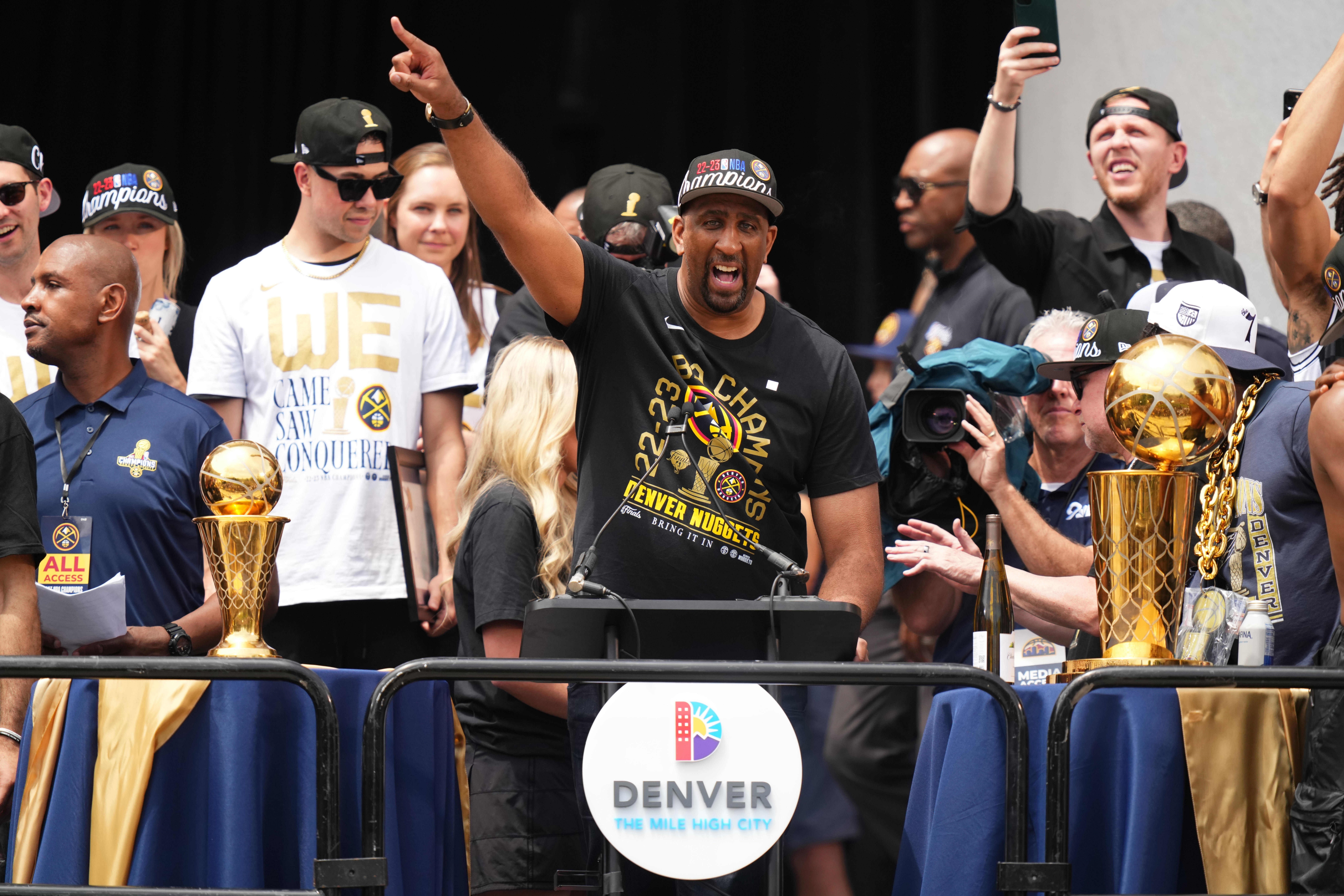
From the Nuggets' championship in 2023 to the trade of Michael Porter Jr. this month for Cameron Johnson, they have not introduced any NBA player through trades during this period (they did make some deals involving draft picks).
This inaction was mainly due to financial considerations, which eventually led to the dismissal of General Manager Calvin Booth. This means Denver can only rely on internal cultivation or searching for cheap veterans like Dario Salic, Justin Holiday and Russell Westbrook in the free market to fill the veteran gap.
These substitutes were either too young or too old to provide enough support for Jokic to get him to the Finals again. In the 2022-23 playoffs, the net efficiency value of the Nuggets starting lineup was +9.4; in the 2024-25 playoffs, this value rose to +11.3. However, in the 2022-23 season, in addition to the starting lineup, the other Nuggets beat their opponents by 98 points, thanks to the contributions of Bruce Brown and Jeff Green; in the 2024-25 season, the net loss score of other Nuggets was -142 points.
14. Lakers: The 3D players who gave up the championship lineup
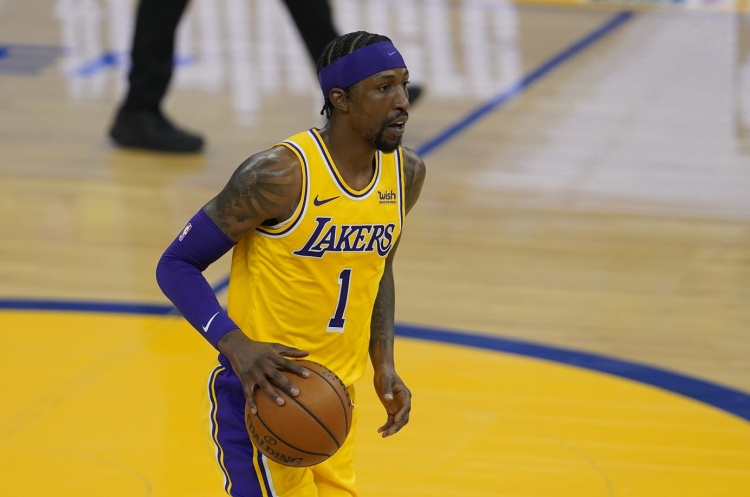
The Lakers won the championship in 2020 with a simple formula: LeBron James and Anthony Davis plus 3D character players equal success. However, in their attempt to win the championship again, they forgot the old saying "If it is not broken, don't repair it" and exchanged the 3D wingers for the ball handler.
Shortly after winning the championship, they traded Danny Green and a first-round final draft pick (later Jayden McDaniels) for Dennis Schroeder. A year later, the offer for Caruso in the free market was too low, leading him to join the Chicago Bulls. The most fatal blow was a failed big deal, and they exchanged Kuzma and Pope for Westbrook, who had already passed his peak.
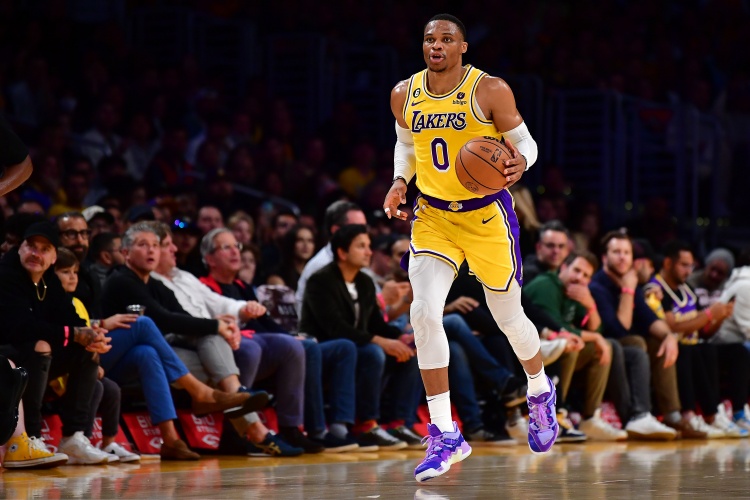
Each step is worse than the previous step, especially Westbrook cannot integrate into the system with James as the core. The Lakers failed to make the playoffs in their first season at Westbrook and traded him with a future first-round pick in the middle of the second season. But the overall impact of such a wrong strategy at management is obvious: The Lakers won four playoff series in 2020, but won only two series in total in the next five seasons.
13. Pistons: In 2023, hiring Monty Williams as head coach
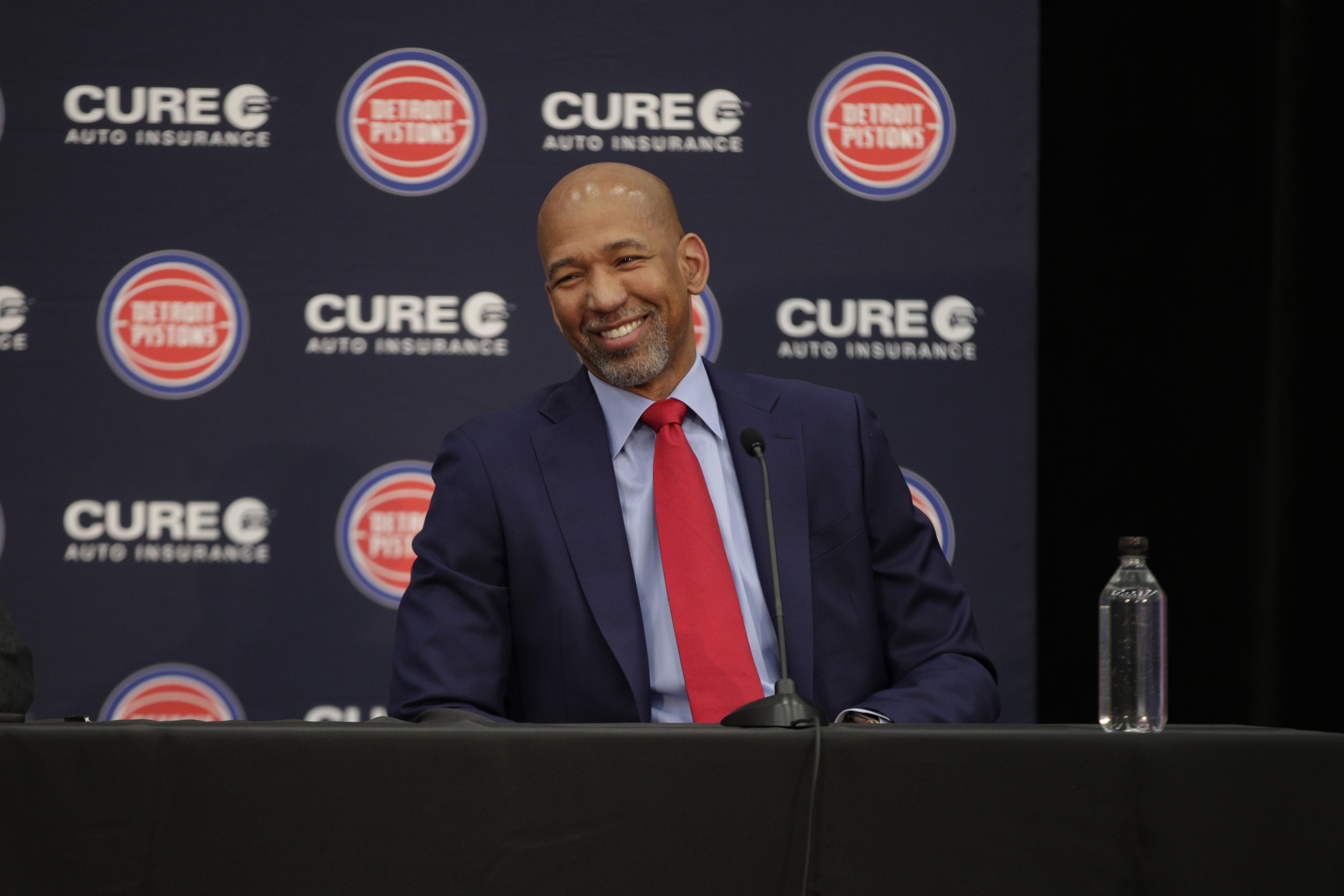
In the four seasons of the Phoenix Suns, Williams led the team to the finals, won the Coach of the Year Award, and achieved a 63% win rate. He is a highly respected coach and a veteran voice in the NBA.
However, his tenure with the Detroit Pistons was a disaster. The Pistons hired him shortly after the Suns fired him for a second-round playoff defeat. At the time, he received the largest coaching contract in NBA history ($78.5 million for six years), but he didn't seem to really understand the strengths and weaknesses of the new player, and his rotation was puzzling. He publicly criticized players, used double-large rosters to limit the Pistons' space and chose to start Killian Hayes, who failed the draft, instead of potential sophomore Jaden Ivey.
In a turmoil, the Detroit Pistons set a record of 28 consecutive losses and ended the season with a record of 14-68, the worst record in team history. This is not only a failed season, but also a major regression for a team that is in urgent need of momentum to move forward. The situation became so out of control that even though the team still owed Williams a $65 million salary, he was fired after the season.
Looking back, Williams' term seems even more unbearable. Bickstaff, who succeeded him, ranked second in the Coach of the Year, cleared the mess left by Williams, led the Pistons back to the playoffs and helped Cningham grow into an All-Star.
12. Heat: Trade gets Rozier
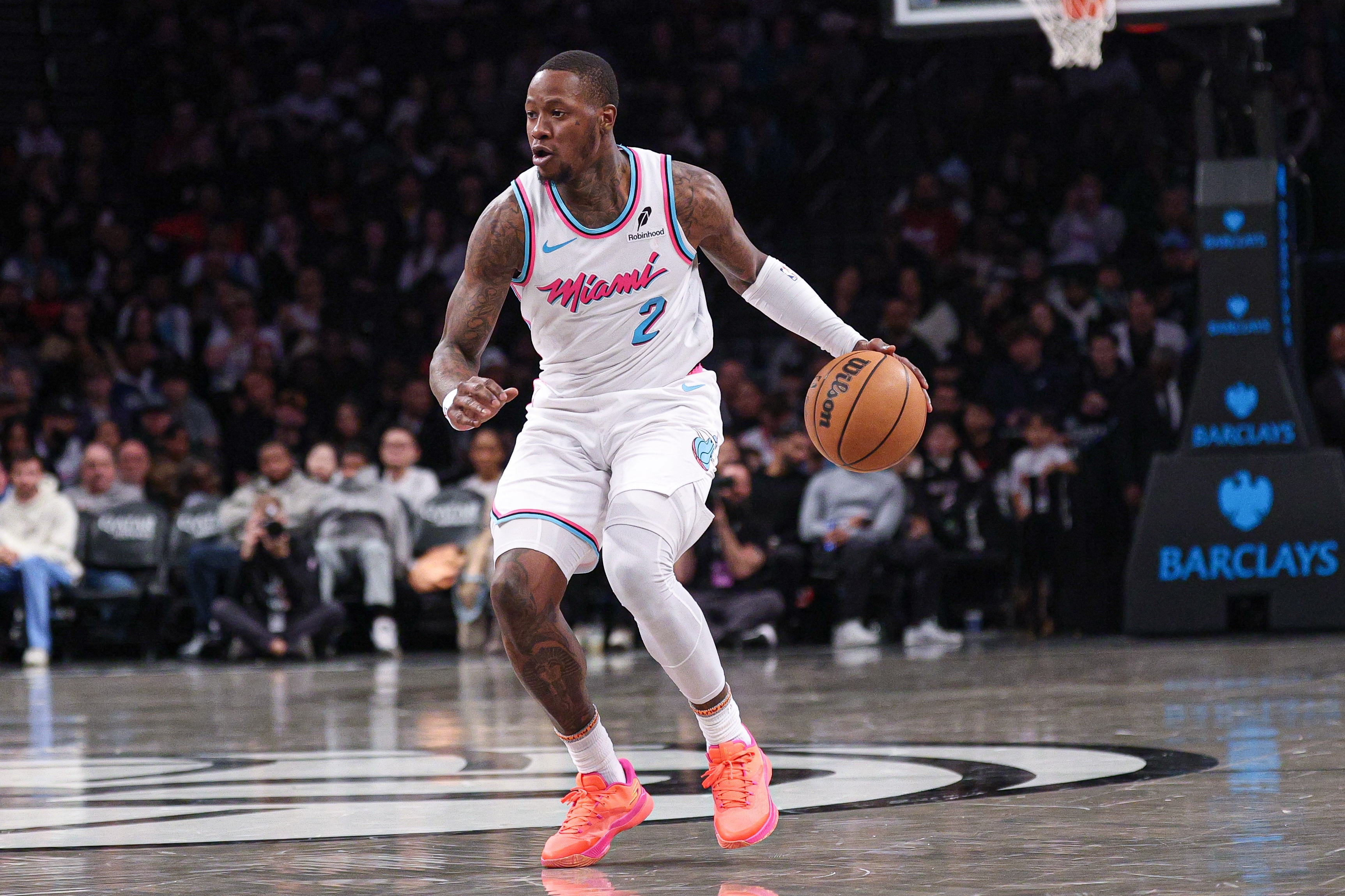
Although Heat general manager Pat Riley is known for chasing star players, he is not a reckless trader. Instead, he usually only takes action when he can bring about major changes. In the past 15 years, the Heat have only introduced LeBron James, Chris Bosh, Golan Dragic, Jimmy Butler... and Rozier only when they give out first-round picks in the trade. The top four players all made the All-Star roster in Miami and helped the Heat reach the Finals. By comparison, Rozier averaged only 12.5 points per game, shot 40% from the field, did not participate in a playoff game, and eventually lost the trust of head coach Spoel and was even involved in a federal gambling survey.
Worse, Rozier was the last big attempt by the Heat to find another star teammate for Butler before he asked to leave the team. Now they are in trouble and have no obvious way back to the championship ranks – and they owe the Hornets a future first-round pick as part of the Rozier deal.
11. Raptors: Trade role players with first-round picks for four consecutive years (2022-2025)
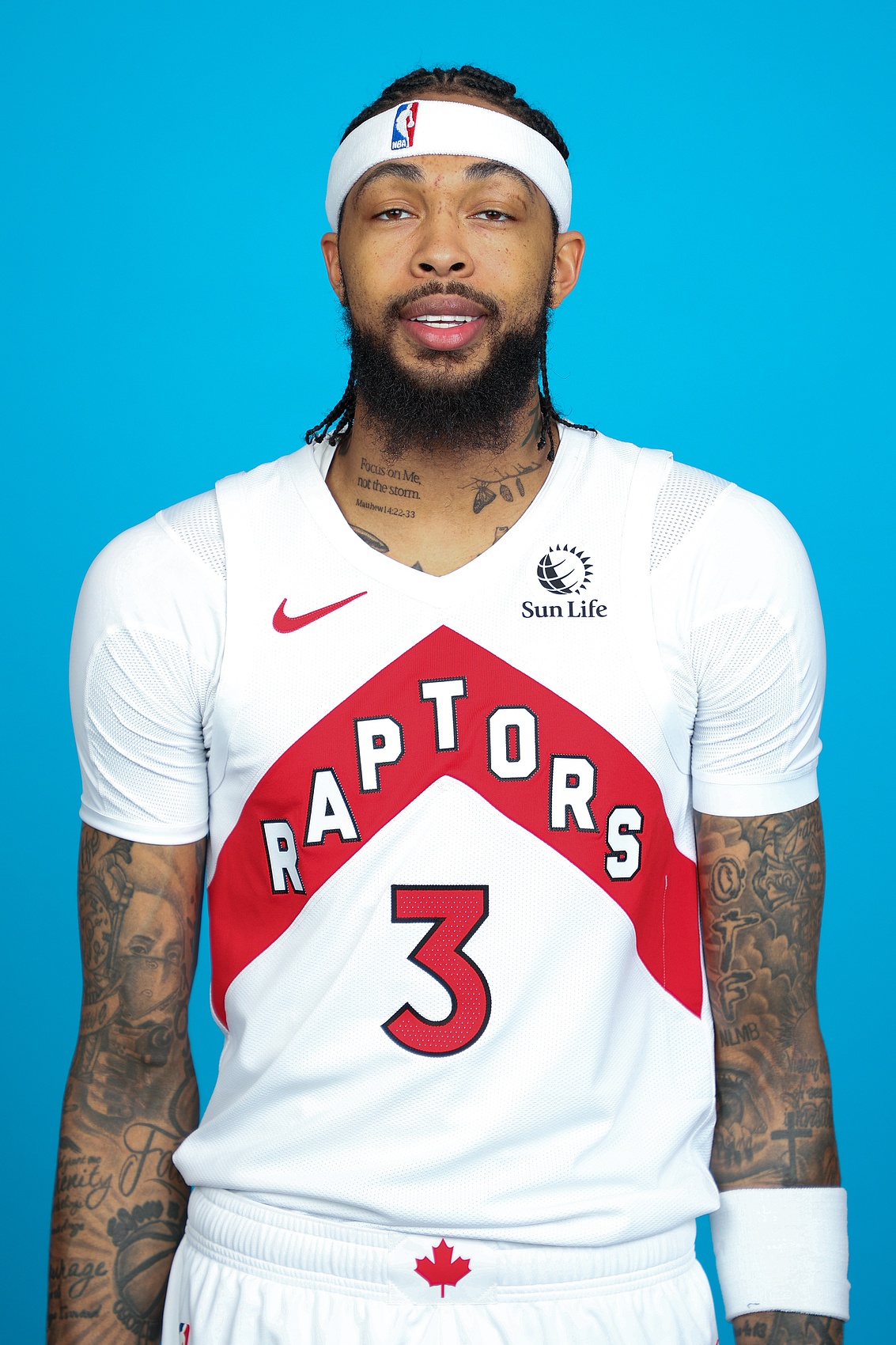
At each trading deadline for the past four years, although the Raptors did not enter the playoffs for three of the years and did not have a home advantage in the fourth year, they still traded their first-round draft picks.
Here are the specifics of these deals:
2022: Saidis Young (the draft pick ended at 20th, and Branham was selected)
2023: Pearl (the draft pick ended at 8th, and Dillingham was selected)
2024: Abaji and Kelly Olynick (the draft pick ended at 29th, and Collier was selected)
2025: Brandon Ingram (the draft pick ended at 2026)
Although these draft picks do not bring any potential rookies that cannot be missed, the opportunity cost is very high for Toronto. Moreover, none of the players obtained by the Raptors through these trades have significantly improved the team's competitiveness. Yang averaged only 3.3 points per game and only played 14.5 minutes in the Raptors' only playoff journey since 2020.
10, 76ers: $399 million renewal of George and Embiid, it is difficult to blame the 76ers' failure in the past decade of playoffs on a deal, after all, the team has not reached the division finals since 2001. Ben Simmons failed to meet expectations, Embiid was injured several times, and the team lost two tiebreakers in the second round.
Nevertheless, Philadelphia will at least make the playoffs and remain competitive in the first half of this decade. However, in the 2024-25 season, the Sixers achieved only 24 wins and 58 losses, the worst result since the "process" era, and the team's future has become more uncertain. It all stems from the summer of 2024 — when they were widely regarded as big winners in the offseason. The
76ers signed 34-year-old Paul George for four years and $211.6 million, and also renewed the contract with Embiid, who has been injured for three years, with a contract amount of $187.6 million, although the latter has two years of contract and player options. As a result, George played his worst season in a decade, while Embiid played in only 19 games with ups and downs.
Now, the Sixers will have to pay George's salary in the next three years, and Embiid's new contract will not take effect after a year. Neither of the veterans seem to prove that last season's performance was just a coincidence, as both may have missed the start of the 2025-26 season due to injury.
9. Bulls: The trade got Vucevic
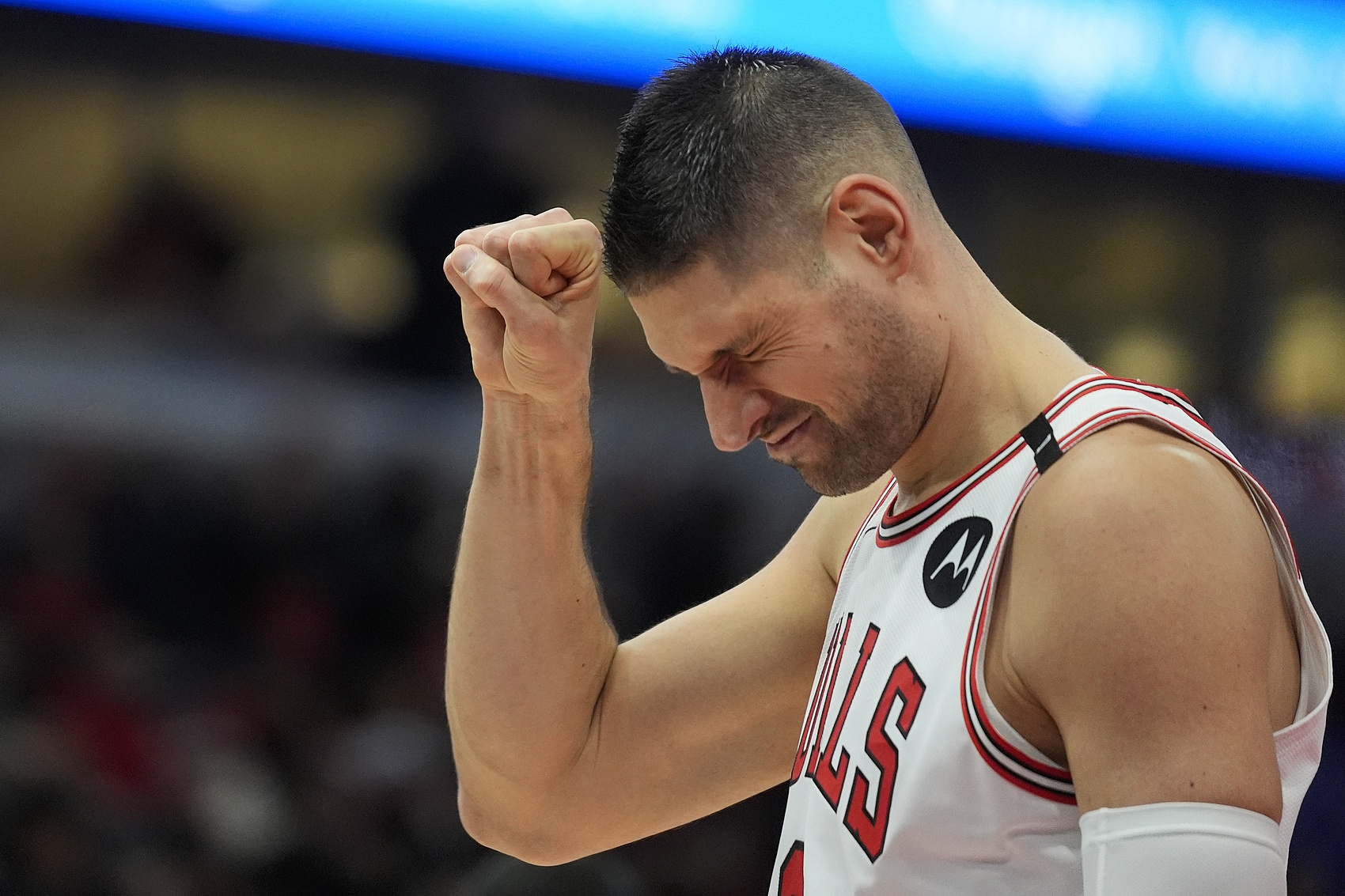
The biggest mistake of the Chicago Bulls in the past decade may be that they have been pursuing mid-level rankings, rather than choosing to rebuild when there is no hope of championship competition, like most NBA teams. The issue began with Vucevic’s deal, the first big deal since CEO Carnisovas took office, who traded Wendell Carter and two future first-round picks (both eventually turned into lotto signs) from the Orlando Magic for Vucevic.
Vucevic is a strong player, twice selected for the All-Star and is at the best of his career when he was traded. However, due to his defensive deficit, there is a clear ceiling for the team with Vucevic, and his joining symbolizes the Bulls' lack of greater ambitions. In fact, the Chicago Bulls won only one playoff win in total with Vucevic, DeRozan and Raven.
Meanwhile, the Orlando Magic used one of the extra draft picks to choose Franz Wagner, who could have been the best young player in Chicago since Jimmy Butler. (Another extra draft pick was used to select Jet Howard, which is considered a major mistake for the Magic.)
8. Grizzlies: The trade was given to Marcus Smart (2023)
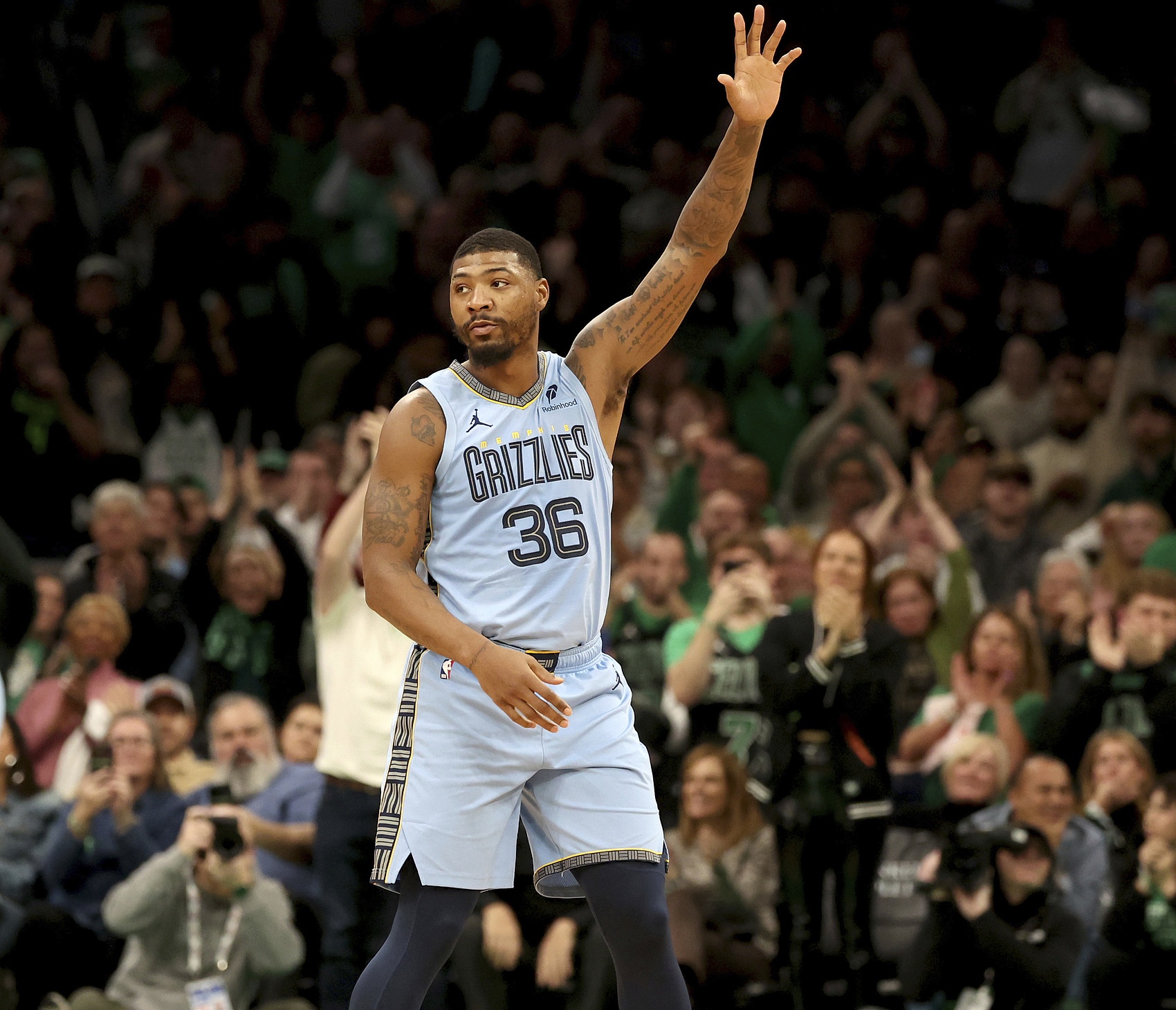
After more than 50 wins and second seed positions in several consecutive seasons, the Grizzlies think they need the last player to help the team take the next level. They aimed at Smart, the defensive player of the year who had entered the NBA Finals with the Celtics and paid a high price to pair him with Morant: two first-round picks and Tyame Jones, who might be the best backup point guard in the league.
However, as other Grizzlies' rotation players were out due to injuries and suspensions, Smart became part of the problem rather than a solution. He played only 39 games in his year and a half with the Grizzlies before being traded before the 2025 trade deadline – the Grizzlies even used their third first-round pick to get rid of his contract. According to VORP (value higher than replacement players), Smart's value during Memphis was zero.
7. Hawks: The trade gets Dezhangtai Murray
6. Pelicans: The trade gets Dezhangtai Murray
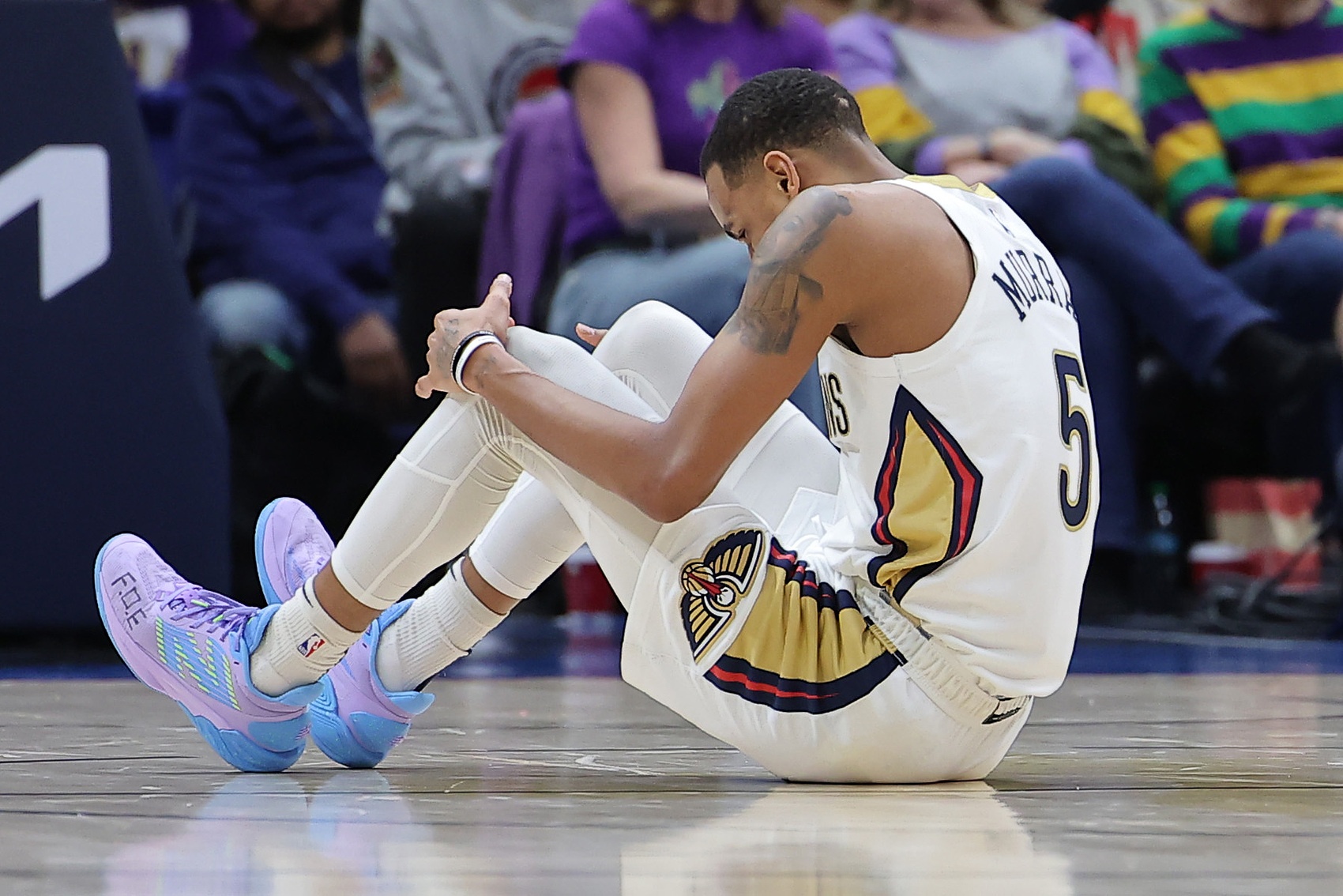
First of all, Murray has become the target of the two worst trades in the past decade, and it is not his fault. He was an All-Star player and was selected for the All-Defensive Team.
But we put these two deals together because they are both related to Murray's "curse".
First, in order to find a backcourt partner for Trae Young and recreate the glory of accidentally entering the Eastern Conference Finals in 2021, the Hawks traded Murray from the Spurs at the cost of three future first-round draft picks and a draft pick swap. One of the draft picks (via the Hornets) ended up not delivering, but the Spurs used the deal to get Carter Bryant (the 14th overall pick last month) and still holds the Hawks' unprotected first-round picks in 2026 and 2027.
Despite the high cost, Murray did not bring the Atlanta Hawks closer to the ranks of competition. In both seasons where Murray joined, the Hawks failed to achieve a win rate of more than half, and the lineup that Young and Murray appeared together were at a disadvantage in the past two years.
Luckily, the New Orleans Pelicans made a more imbalanced deal two years later, trading All-Star guard Murray for Dyson Daniels and two first-round picks (one of which has been sent by the Hawks in the Porzingis trade and the other to be cashed in 2027).
If the deal is just a one-on-one exchange between Murray and Daniels, the Hawks will be the winner. Murray was reimbursed last season due to a torn Achilles tendon, the Pelicans also finished the season with a record of 21 wins and 61 losses, while young Daniels won the Fastest Progressive Player Award and became the second place in the Defensive Player of the Year. The Pelicans also sent out two first-round picks, which made their deal look even more unfavorable.
5. Kings: Losing Halliburton and Fox in three years
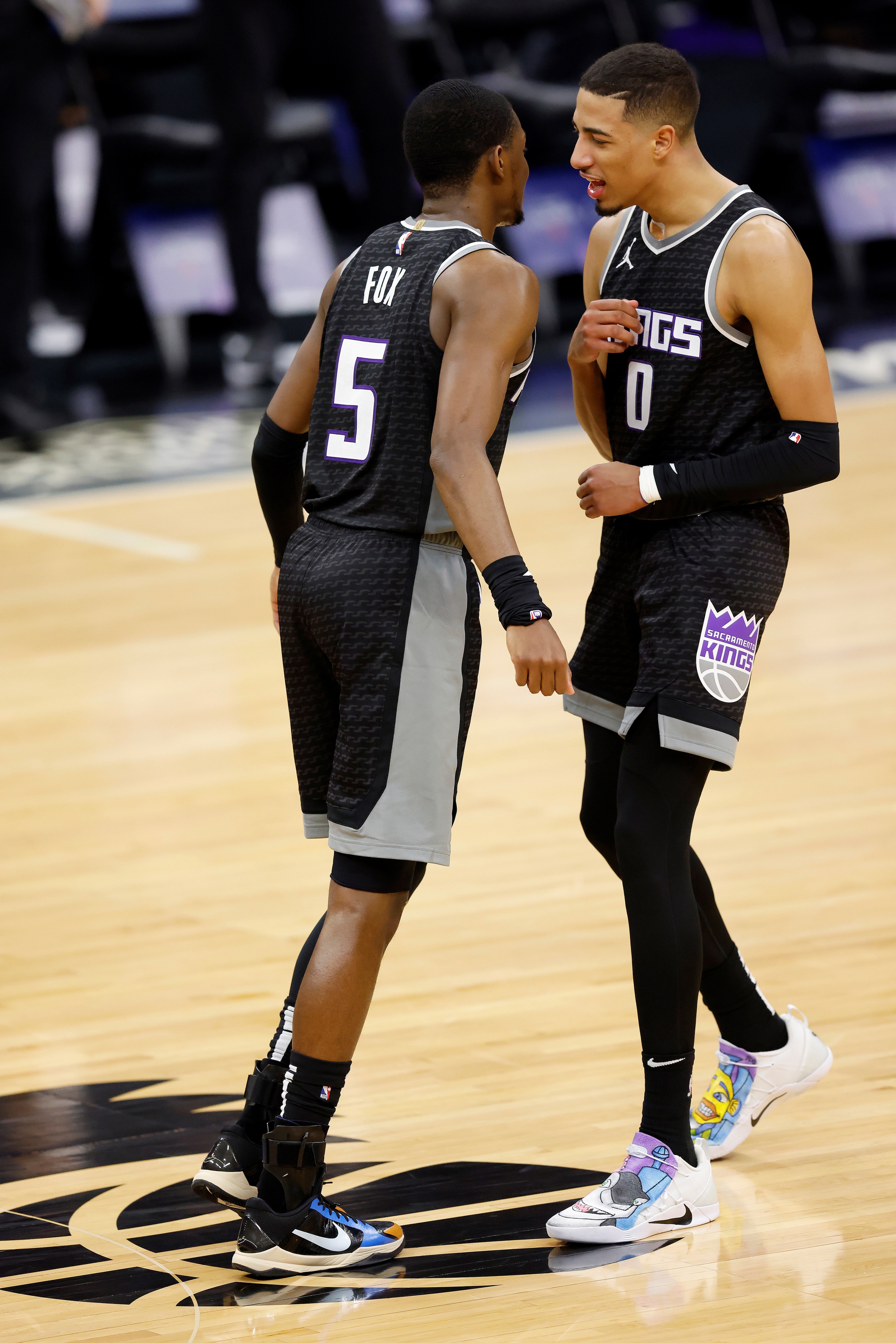
The Kings face an enviable dilemma in 2022: they have two young point guards, 24-year-old Fox and 21-year-old Halliburton. The team needs to decide whether to build a team around one or two of the players. Eventually, they chose Fox and traded Halliburton to the Pacers for Sabonis.
At first, the deal seemed to be good for both parties. Halliburton grew rapidly in the Pacers' backcourt, while the combination of Fox and Sabonis led the Kings to the league's best offense in the 2022-23 season and entered the playoffs with third place in the Western Conference. This is the first time the Kings have returned to the playoffs in 17 years.
However, the Kings' good luck did not last long. In the 2023-24 season, they lost the playoffs against the Pelicans and failed to make the playoffs. Subsequently, in the 2024-25 season, Fox, who was dissatisfied with the status quo, was traded and the Kings missed the playoffs again.
In just a few years, the Kings have fallen from their best performance in recent years to a state of no clear direction and mismatch in lineups, from having two point guards to not having one now. Meanwhile, Halliburton led the Pacers to the Eastern Conference Finals for two consecutive years and played to Game 7 in the NBA Finals, becoming one of the league’s best passers and key scorers.
4. Nets: The deal got Harden
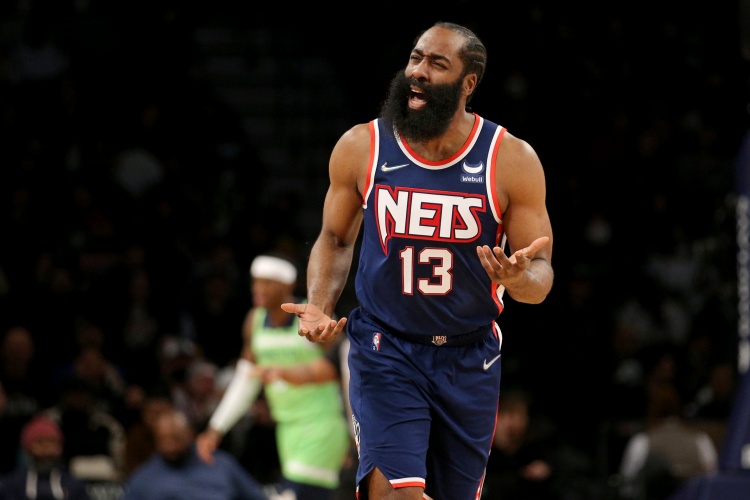
If Harden and Irving were not injured in the 2021 playoffs, if Durant made a turnover jump shot that equalized the score in Game 7 against the Bucks, if Irving did not refuse to get the new crown vaccine and caused the Nets Big Three to end the experiment, then Harden's trade may turn from a disaster into a victory. However, all these assumptions failed to come true, and Harden's deal failed to do so.
In the year and a half of dramatic seasons that were exchanged for, the Nets actually won much fewer games than they thought. To get Harden, the Nets sent Jarrett Allen, LeVere, three first-round picks and four draft picks swaps (two of them were not exercised in the end). The Rockets have used the generous reward to pick Tari Ethan and Reed Shepard and helped them get Durant from the Suns trade. More rewards are still ahead; in later trades, the Nets had to give the Rockets more draft picks to redeem some choices because they realized that the Durant Harden Irving era was over and they needed to rebuild.
Worse, when Harden asked for a trade in 2022 and was sent to Philadelphia by the Nets, their main reward was Ben Simmons, but he never regained the offense and defensive value he was selected for the NBA All-Squad in 2020. During his time with the Sixers, Simmons averaged 16 points per game, while during the Nets' sporadic playing time, he averaged only 6.5 points per game.
3. Bucks: The trade was obtained by Lillard
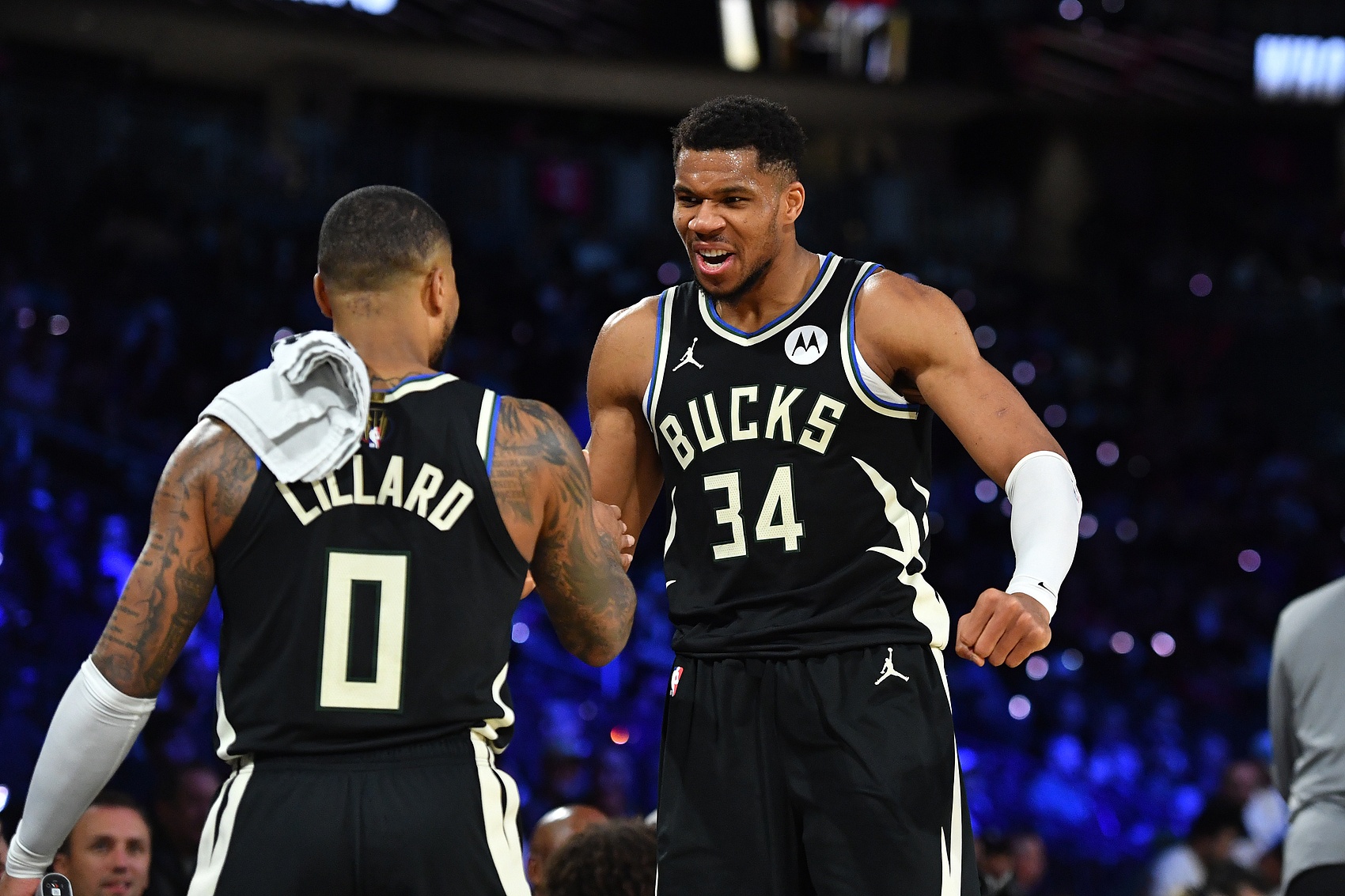
In the 2023 playoffs, the team urgently needed a major change after the Bucks lost to the Heat as the No. 8 seed. Their offense needs to be upgraded, and Lillard looks like the perfect partner with Antetokounmpo. Soon after, the Bucks won Lillard with Holiday (who was subsequently traded to Boston and won the championship), Grayson Allen, a future first-round pick and two draft picks exchanged.
However, two major issues resulted in the Bucks not only failing to compete for another title after Lillard joined, but they didn't even win a playoff series. First, although the two seemed appropriate in theory, Lillard and Antetokounmpo did not blend well in the actual game. According to GeniusIQ, these two future Hall of Famers have only performed 20.2 pick-and-roll matches per 100 rounds in the past two seasons, ranking only 46th (the lowest 500 pick-and-rolls).
The second problem is that at critical moments, neither of them stayed healthy. Antetokounmpo missed the entire 2023-24 season playoffs, while Lillard missed some playoffs in the 2023-24 season and 2024-25 season due to injury, and the latter ended his career with the Bucks early due to a torn Achilles tendon.
A few months after Lillard was injured, the Bucks made a surprising decision to slash and defer the remaining Lillard contract in order to free up cap space to sign free agent Miles Turner. But now, the Bucks pay $22.5 million a year for Lillard until the 2029-30 season, and they won't be able to control their first-round picks until 2031.
2. Suns: The deal was obtained by Durant and Bill
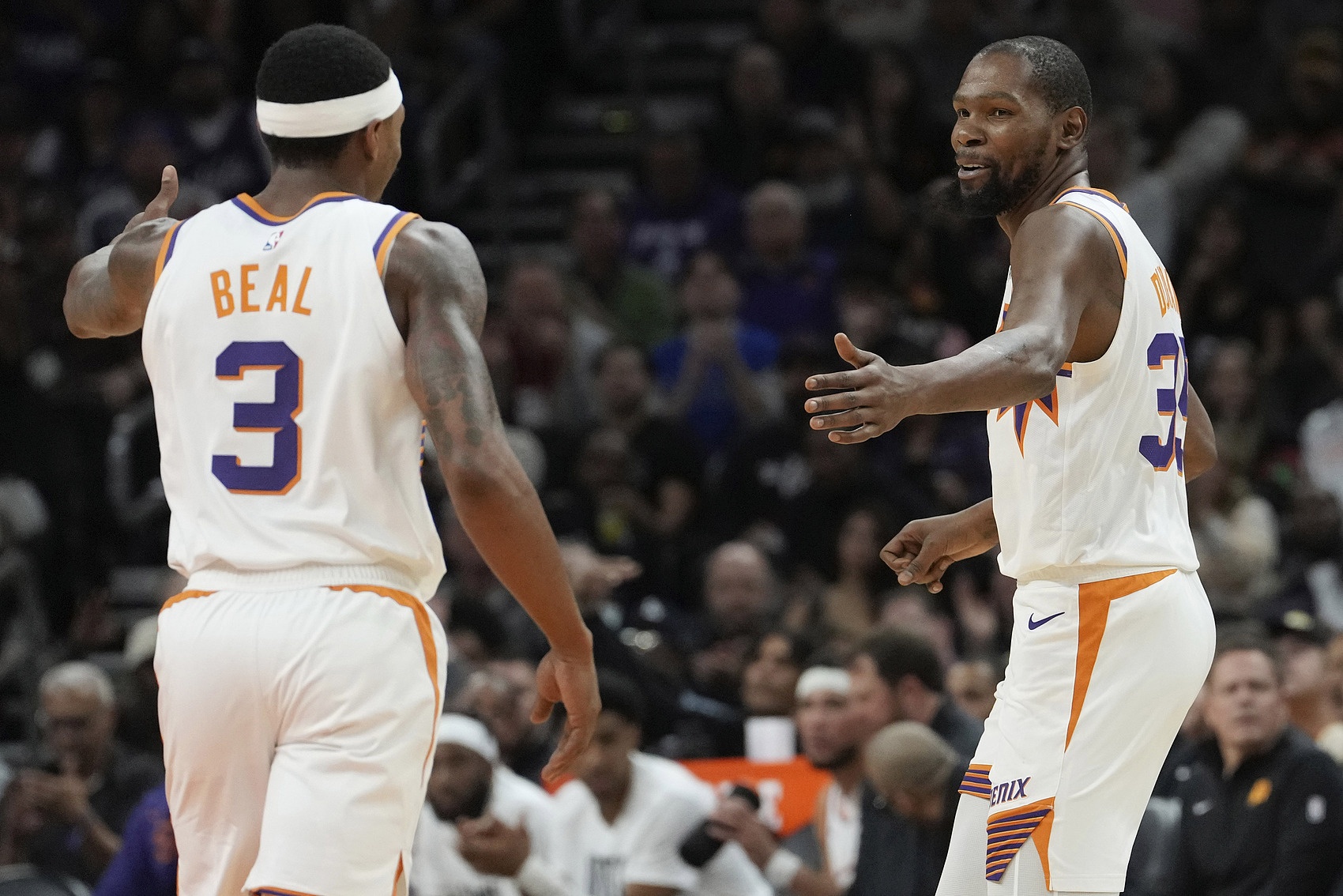
Matt Ishbia officially became the new owner of the Phoenix Suns on February 7, 2023. Just 24 hours later, the team traded Durant. This so-called "new boss syndrome" has never appeared so quickly: Ishbiya pushed the team to pay a huge price for Durant — including Mikal Bridges, Cameron Johnson, Crowder, four unprotected first-round picks and one exchange — a series of actions almost destroyed a team that reached the NBA Finals in the 2020-21 season and won the league's best 64 wins in the 2021-22 season.
The problem is not only Durant's deal, but also the Suns have repeatedly insisted on increasing their bets and mortgaged all their future for the immediate victory. That summer, the Suns traded Chris Paul for Bradley Bill, who had the trade veto and had more than $200 million remaining in the contract.
In order to introduce Durant and Bill, the Brooklyn Nets and Washington Wizards paid a total of 12 first-round picks and six draft swaps in rescheduling the deals between Bridges, Johnson and Paul. In addition, they formed the NBA's most expensive lineup to date and were severely punished by the second luxury tax line.
However, what are the returns from these huge investments? In the first season of Durant joining, the team was eliminated in the second round of the playoffs; in the second season (and the first season of Bill joining), the team was swept in the first round of the playoffs; and last season, the team even ranked 11th in the West.
Now, Durant is traded at a price far lower than the original introduction; Bill is bought out and shared the contract, and will occupy the Suns' $19.4 million salary space per year in the next five years; the Suns will not be able to control their first-round draft pick until 2032. It can be said that no NBA team has a worse long-term prospect than the Phoenix Suns.
1. Mavericks: Trading Luca Doncic
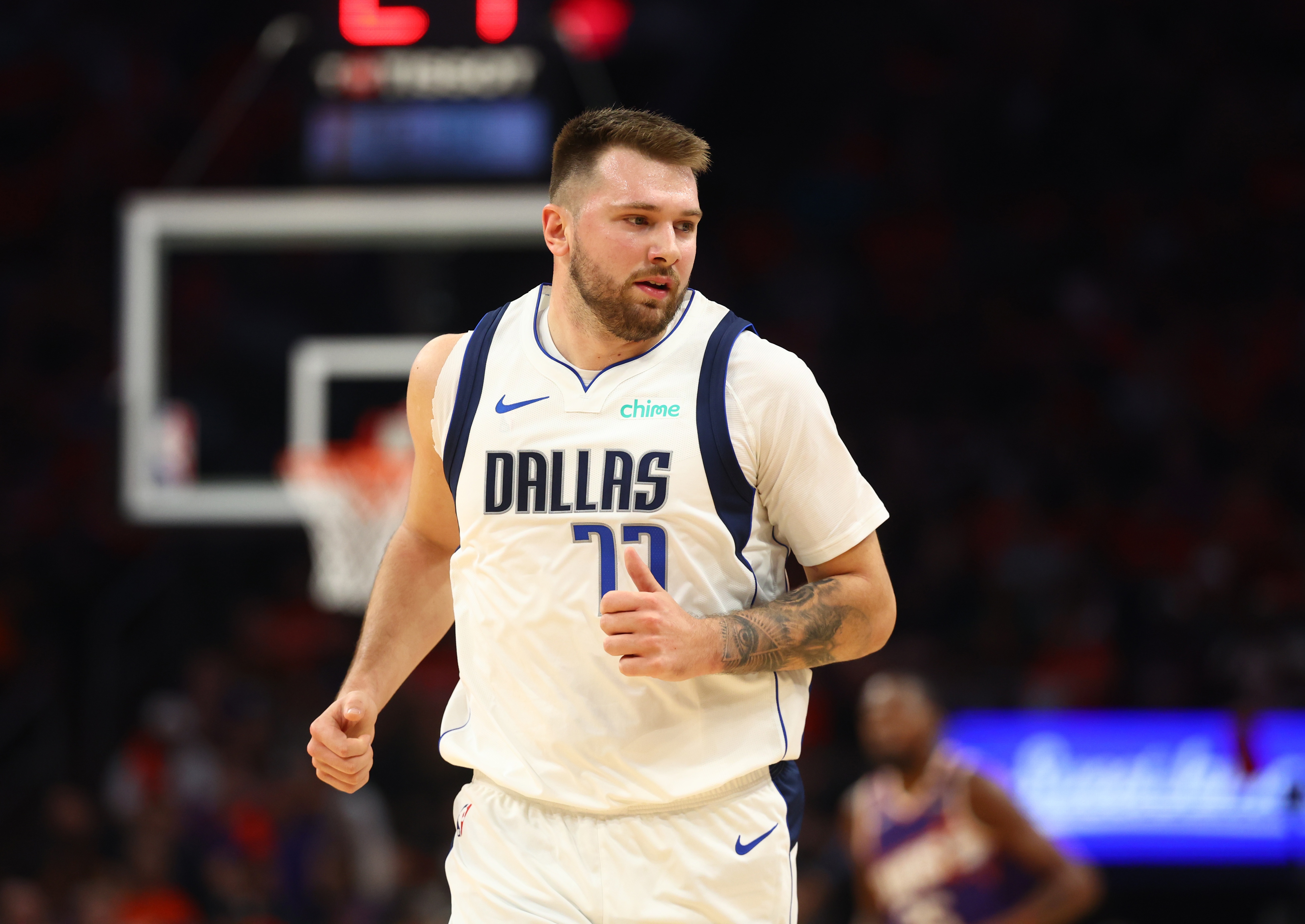
In NBA history, perhaps no deal can compare to the recent one. It is not only the worst, but also the most shocking.
The previous top-ranked deals were mostly because the team paid too much assets to introduce a star player. However, Doncic's deal was completely different: a team sent away a core player who was loved by fans, who had just led the team to the Finals and was selected to the NBA All-Squad for a record five times before the age of 24.
Because the Mavericks performed poorly in the 2024-25 season after losing Doncic, they eventually entered the lottery zone and were lucky enough to draw the No. 1 pick and selected Cooper Flag, their future seems to be brighter than the Suns, Bucks, Nets or the Kings. Flag and Anthony Davis (the main reward the Mavericks get from the Doncic trade) are expected to quickly lead the team back to the championship.
However, only this deal was so unexpected this century that when ESPN reporter Shams reported, there was even doubt that his social media account had been hacked. Only this deal is so ridiculous that it becomes a flash memory that fans around the world will remember when they heard the news for decades to come. Most importantly, only this deal sparked massive protests from the fan base.
For this reason, Doncic's trade was ranked No. 1: it surpassed the typical trading response and touched the emotional core of sports fans. This is a once-in-a-century mistake.
Original text: Zach Kram
Compiled: selu
source:7m việt nam